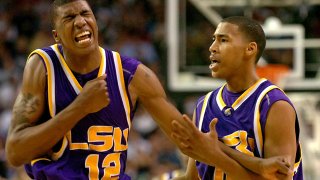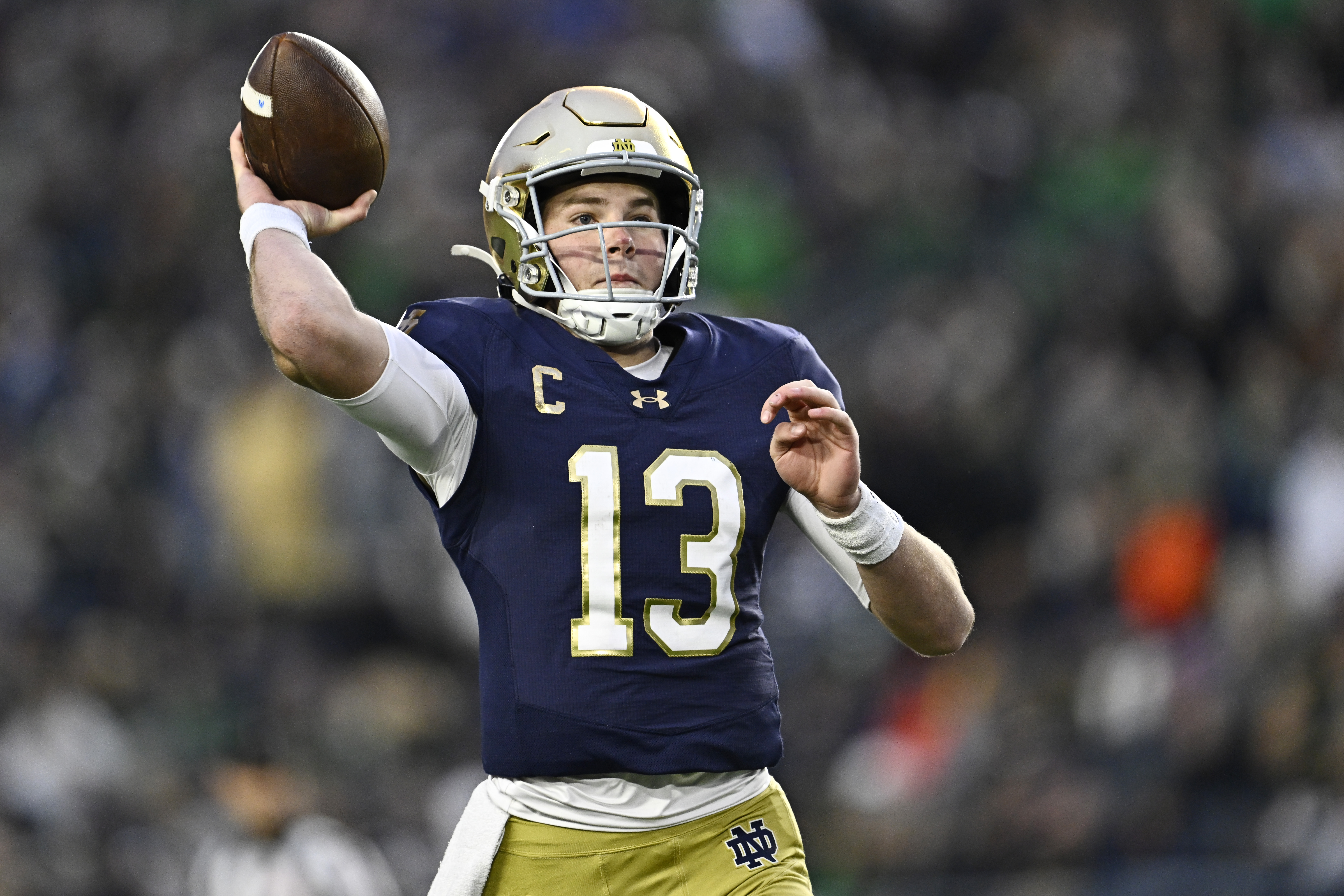
Tyrus Thomas, Garrett Temple share bond beyond basketball originally appeared on NBC Sports Chicago
When the Bulls signed Garrett Temple, the free-agent acquisition didn't move the needle much for some. The well-traveled veteran arrived with modest expectations.
Now that Temple has exceeded those, showcasing his reputation as a glue guy at both ends and veteran leader, some surprise has followed.
Tyrus Thomas isn’t surprised.
“Garrett is one of those special dudes, man,” Thomas said in a phone conversation. “He’s just that guy that everybody loves and that guy who makes everybody around him better.”
Thomas, the Bulls’ first-round acquisition in 2006, has known Temple since they were three years old. Along with Glen Davis, the three natives of Baton Rouge, La. grew up playing bitty basketball together -- “We won three titles in a row from (ages) nine to 11,” Thomas said -- and teamed up to lead LSU’s surprising run to the 2006 NCAA Final Four.
Though they went to different high schools, which were mere blocks away from each other, they played on multiple AAU teams together and also spent the tail end of the 2010-11 season together in Charlotte.
“We’ve been playing together our whole lives,” Thomas said.
Thomas, who is coaching and mentoring youth in Baton Rouge after capping his eight-year NBA career by playing in Germany’s Basketball Bundesliga, last saw Temple a few weeks before Temple reported for Bulls training camp. The lifelong friends each welcomed their first children this year, and wanted them to meet each other and share their joy.
“Garrett is one of those friends you’re always appreciative of,” Thomas said.
When Temple signed his three-year, $24 million deal with the Kings in July 2016 after enduring eight 10-day contracts to grind out his place in the league, Thomas called him, crying.
“He was like, ‘Man, why are you crying?’ And it was because I was so happy for him,” Thomas said. “Unlike a lot of the guys in the NBA, including myself, he actually has family and the foundation where he’s not the savior for the family. He understands a lot more than we did. He always was more advanced just in the sense of rationale and logic as opposed to guys like me and Glen who grew up in survive mode and we’d sometimes be irrational.
“So I was just so happy for him because I knew he’d be able to handle it and enjoy it the right way, as opposed to some guys who have to try to figure out ways to change the trajectory of their family. His family did well for him and by him. He’s always been a well-rounded guy.”
As for that family, Temple’s backstory has been well documented but remains remarkable. His grandfather, Collis Temple Sr., had to attend Michigan State to get his Masters degree because LSU wouldn’t admit him because of his skin color.
Temple Sr. rose above not only to become a school administrator and principal, but to send his son, Temple’s father, to LSU as the first Black basketball player in school history. Collis Temple Jr. endured racism, including some from classmate and future Ku Klux Klan grand wizard David Duke, while playing for Press Maravich -- Pete’s father -- at LSU.
“It always meant something to us,” Thomas said. “His Dad had to endure. And it gave him and his family tools to navigate their lives.
“One thing Collis always taught me is the reality of black and white. And Garrett’s Dad raised him to understand life in totality, that you’re not better than anybody because of how you live. Garrett’s family was fortunate. But Garrett always has been able to keep things in perspective. And he helped me put a lot of stuff in perspective.”
For instance, 15 years removed from their magical run to the 2006 NCAA semifinals, a run that led to the Bulls trading the draft rights to LaMarcus Aldridge for the draft rights to Thomas, Thomas remembers how Temple early on reminded his teammates that LSU’s season was “bigger than basketball.”
Hurricane Katrina had decimated the area in August 2005. And the 27-9 season that followed brought widespread joy.
“It was a ray of hope for people,” Thomas said. “People still come up to me and tell me that those games were like a break from reality. You’d watch for two hours and perhaps you can forget for just a while that you’re displaced because you’re happy we were winning. I had people then and still have people now tell me where they were when we were playing because it was such a traumatic time.”
One such instance came early in that season. Before a road game in West Virginia, Thomas heard the unmistakable sound of a New Orleans accent as he passed a hotel housekeeper. When she learned who was staying at the hotel, she expressed her appreciation for the escape.
“Back then, Garrett would always say: ‘This is bigger than us,’” Thomas said. “And to do it in your hometown was special. We were playing with guys we knew our whole lives. The chemistry was there. Our families would hang out together.
“In the dorms, we’d hang out together every day if we weren’t in class or practice. Everybody knew how to get on each other so we could argue and fistfight in practice and then go eat lunch and dinner like nothing happened. We just wanted to win. It was a magical time.”
Coincidentally, that Final Four culminated with the first of Billy Donovan’s back-to-back NCAA titles with Florida. Now, Donovan is coaching Temple.
Thomas, meanwhile, said he doesn’t watch much NBA basketball anymore. But he doesn’t need to for his bond with Temple to remain.
“That’s for life, man,” Thomas said.





